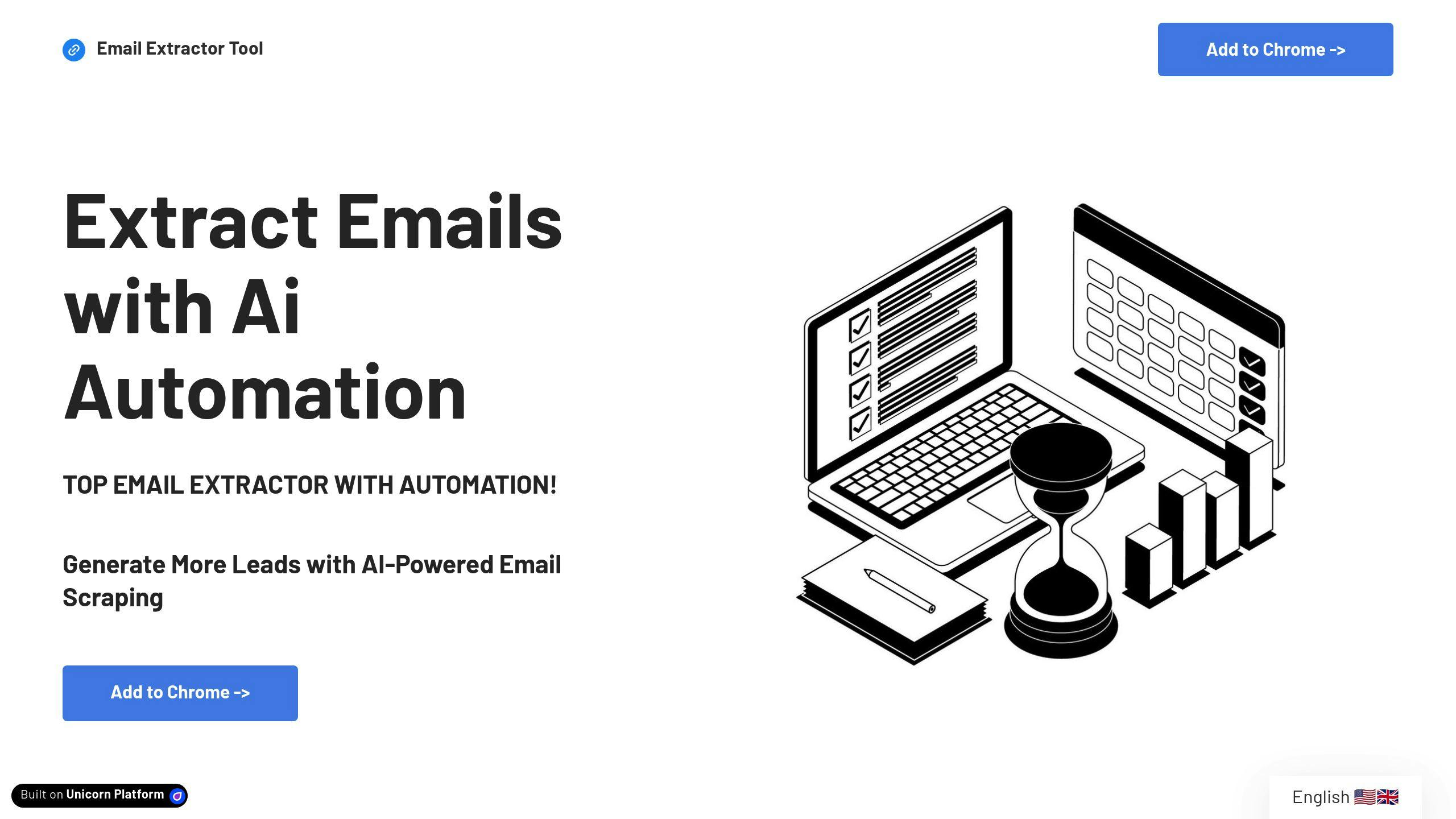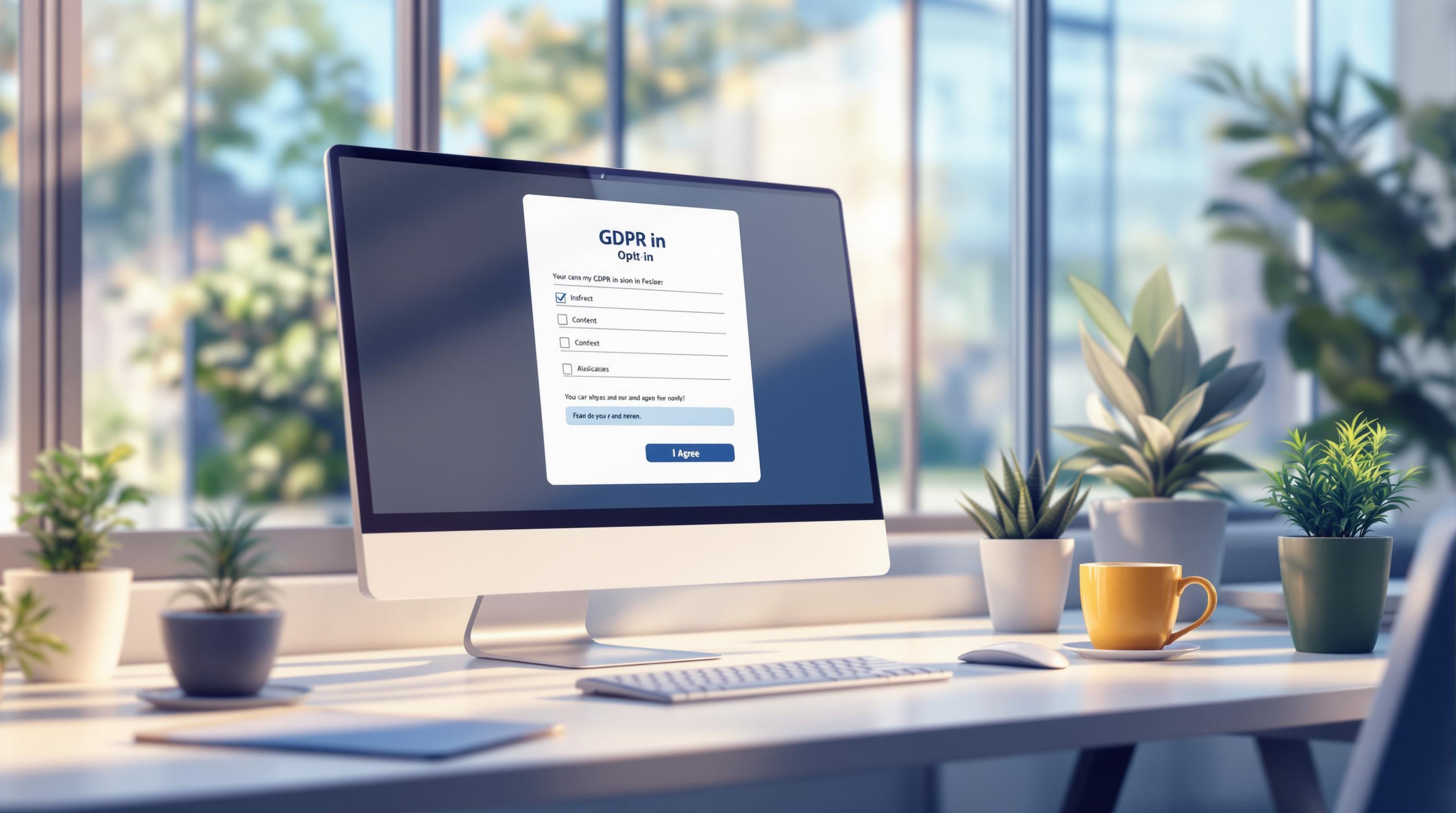Web scraping is a powerful tool for collecting data, but doing it ethically is crucial to avoid legal risks and maintain trust. Here's what you need to know:
- Follow Website Rules: Always check and respect
robots.txtfiles and terms of service. - Minimize Server Load: Use rate limiting, delays, and scrape during off-peak hours.
- Respect Privacy Laws: Comply with GDPR and other data protection regulations by securing permissions and safeguarding personal data.
- Use Ethical Tools: Choose tools that prioritize compliance, like those with rate limiting and transparent logging.
Key Takeaway: Ethical web scraping ensures responsible data collection while avoiding fines, lawsuits, and reputational damage. Follow clear guidelines to stay compliant and respectful.
Principles of Ethical Web Scraping
Respecting Website Terms and Conditions
Before starting any web scraping activities, it's crucial to review and follow the website's terms and conditions. These terms often outline what is and isn't allowed. Additionally, the robots.txt file provides guidance on which parts of the website are open to automated access [5].
Following these guidelines not only demonstrates respect for the website but also helps avoid legal or ethical issues. Another key aspect of ethical scraping is ensuring your actions don't negatively affect the website's functionality.
Minimizing Server Impact
To avoid disrupting a website's performance, it's important to minimize the load your scraping activities place on its servers. Here are some effective ways to do this:
- Schedule scraping tasks during low-traffic periods.
- Use delays between requests (rate limiting) to avoid overwhelming the server.
- Focus your scraping on specific, relevant data to reduce unnecessary requests.
These practices help maintain the website's usability for other visitors while still allowing you to gather the data you need.
Prioritizing Transparency and Consent
In addition to reducing server load, ethical web scraping requires transparency and, where necessary, consent - especially when working with personal data.
To stay transparent, make sure to:
- Identify your bot with a clear User Agent string.
- Reach out to website administrators if you're collecting a large volume of data.
- Conduct legitimate interest analyses to comply with GDPR requirements.
For handling personal data, conducting a Data Protection Impact Assessment (DPIA) is essential. This process helps identify potential risks and ensures compliance with privacy laws [6].
If you're using automated tools, select those that prioritize ethical practices. For instance, tools like Email Extractor Tool are designed to respect website rules by incorporating features such as rate limiting, bot identification, and secure data handling. These measures ensure responsible and compliant data collection.
Tools and Methods for Ethical Web Scraping
Choosing Tools for Responsible Web Scraping
When selecting tools for web scraping, it's crucial to prioritize features that support responsible and respectful practices. Look for tools that include:
| Feature | Purpose |
|---|---|
| Rate Limiting | Avoids overwhelming servers |
| Robots.txt Compliance | Adheres to website access rules |
| Data Security | Safeguards collected information |
| Transparent Logging | Keeps a clear record of activities |
Regularly reviewing your scraping activities is key to staying in line with ethical standards and the policies of the websites you're working with. This involves monitoring server load, ensuring compliance with privacy laws, and keeping detailed documentation of your processes [3].
One example of such a tool is the Email Extractor Tool, which highlights how responsible design can improve efficiency without compromising ethics.
Email Extractor Tool - AI-Powered Email Collection

The Email Extractor Tool is built to support ethical data collection while respecting website rules and privacy regulations. It incorporates automated rate control, secure data management, and customizable export options, ensuring email extraction is both efficient and responsible.
By combining AI automation with ethical scraping principles, this tool allows seamless integration into workflows while prioritizing compliance. Its design ensures that data collection is handled responsibly, making it a practical choice for email extraction tasks [3].
When using any scraping tool, make it a habit to evaluate your activities regularly. Check server impact, verify data compliance with privacy rules, and maintain thorough records of your scraping processes [3].
sbb-itb-8abf799
Legal and Compliance Issues
Understanding Copyright Laws
Web scraping comes with legal responsibilities, especially when it involves copyrighted content. Using such material without permission could lead to fines as high as $150,000 per violation [4].
Here are some key points to keep in mind when scraping websites:
| Legal Consideration | What You Should Do |
|---|---|
| Original Content | Always get explicit permission before using copyrighted materials. |
| Fair Use | Assess whether your use qualifies under fair use exemptions. |
| Database Rights | Adhere to database rights and any licensing agreements. |
Even though accessing public websites isn't automatically unlawful, copyright and contract laws still apply [6]. It's crucial to understand these laws to avoid potential legal problems. But copyright is only one piece of the puzzle - data protection laws are just as important.
Data Protection Regulations
Handling personal data during web scraping requires strict adherence to data protection laws. Violating regulations like the GDPR can result in hefty penalties - up to €20 million or 4% of global annual revenue [6].
Past cases have highlighted the severe consequences of mishandling data [1]. Tools like Email Extractor Tool can support compliance by offering secure data handling and rate-limiting features.
Here’s how to stay compliant with data protection rules:
- Conduct Proper Assessments: Perform a Legitimate Interests Assessment (LIA) and Data Protection Impact Assessment (DPIA) before collecting personal data [2].
- Implement Data Security Measures: Use encryption, access controls, and regular audits to safeguard data [3].
- Maintain Transparency: Keep thorough records of your data collection activities to prove compliance with regulations [6].
Conclusion
Key Takeaways
Web scraping now operates under clear rules for responsible data collection. Following ethical practices helps avoid legal issues and promotes a healthier digital environment.
Here are three main principles for ethical web scraping:
- Follow legal guidelines: Respect copyright laws and data protection regulations.
- Respect technical boundaries: Adhere to server rules, including those outlined in robots.txt files.
- Ensure secure data handling: Use encryption and implement proper access controls.
Building Trust Through Responsible Practices
By respecting website resources and being transparent, ethical web scraping builds trust between data collectors and providers. This approach benefits both parties while reducing risks. Tools like the Email Extractor Tool can automate data collection responsibly, ensuring compliance and openness.
To uphold ethical standards:
- Use clear User Agent strings to identify scraping activities and keep records for audits.
- Schedule scraping tasks during low-traffic times to reduce server strain.
- Regularly review activities to ensure compliance with laws and best practices.
FAQs
This FAQ dives into the legal risks tied to unethical web scraping, following the earlier discussion on legal considerations.
Can you get sued for scraping?
Yes, web scraping can lead to lawsuits if it breaches copyright laws, disrupts servers, or violates data protection rules.
Here are the top legal risks:
Copyright Issues: Using copyrighted material without permission can lead to fines of up to $150,000 per violation [4]. Always get clear authorization before using such content.
Server Overload: Scraping that overwhelms servers can result in legal action. For example, the LinkedIn v hiQ Labs case highlighted the need for responsible data scraping practices [6].
Data Protection Violations: Breaching regulations like GDPR can have serious consequences, including fines up to €20 million or 4% of global annual revenue [4].
To stay on the safe side, consider these steps:
| Action | Purpose | Why It Matters |
|---|---|---|
| Respect robots.txt and use proper User-Agents | Aligns with website rules | Shows compliance and good faith |
| Limit requests and get consent | Avoids server strain and respects privacy | Lowers legal risks and ensures adherence to rules |
| Keep detailed records | Provides a clear audit trail | Demonstrates compliance with regulations |
Using tools like Email Extractor Tool can also help you stay compliant. These tools often include features like rate limiting and transparent data collection to reduce risks.



